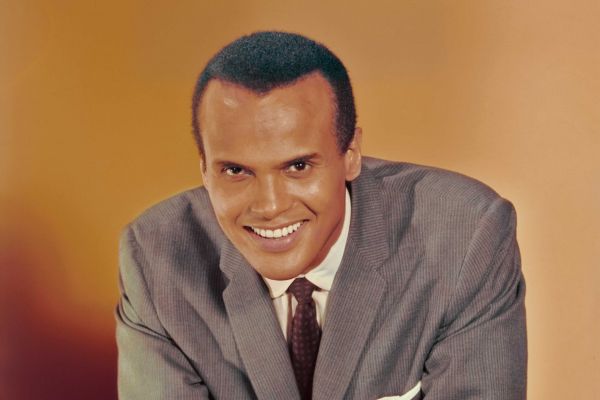On Tuesday, at the age of 96, the legendary pioneer Harry Belafonte passed away. Belafonte’s image as a humanitarian stand large in the minds of many.
Notably, he was a close friend and collaborator of Martin Luther King Jr., protested against South African apartheid, and was an outspoken critic of American leadership, including the decision to invade Iraq by George W. Bush.
In a career spanning decades, he also rose to prominence as a popular recording artist and stage and screen actor.
In the 1950s, he was one of the few African-American actors to attain leading man status in Hollywood (see: Carmen Jones; The World, the Flesh, and the Devil), and his album Calypso, which included his signature hit “Banana Boat Song,” was a best-seller.
He was an EGOT winner (including the non-competitive Jean Hersholt Humanitarian Oscar) and a motivating force behind the 1985 charity single “We Are the World.” He even created one of the most iconic moments in the annals of the Muppets.
Belafonte’s influence spanned so many facets of popular culture and political advancement, and his passing is a tremendous loss for the arts and activist communities.
These recommendations represent a small portion of his enormous body of creative work, but they are among his finest.
Odds Against Tomorrow 1959
Johnny Ingram, a gambling addict and nightclub vocalist deeply in debt to a mobster, is portrayed by Harry Belafonte in one of the last great film noirs of the classic era.
Johnny teams up with a crooked ex-cop, portrayed by Ed Begley Sr., and a racist ex-con, portrayed by Robert Ryan, in order to clear his name and defend his ex-wife and their daughter.
Harry Belafonte stands out in part because he portrays a multidimensional character during an era in which even his colleague and close friend Sidney Poitier was frequently cast in one-dimensional roles.
The performance of Johnny is tense and tense, simmering with resentment and urgency from a hard existence.
Buck and the Preacher 1972
Not to diminish his many accomplishments, but Belafonte was also extremely attractive.
These matinee idol looks helped propel him to prominence, but in Sidney Poitier’s directorial debut, the revisionist western Buck and the Preacher, he gets to play against type as a shady vagabond named Preacher with matted hair and yellowed teeth.
Set shortly after the end of the Civil War, Preacher joins forces with Poitier’s solemn and dignified Buck to defend formerly enslaved Blacks from white mercenaries who wish to force them back into plantation labor.
In this outstanding performance, Belafonte devours the scenery as Preacher, a charlatan overflowing with bombast.
BlacKKKlansman (2018)
Belafonte’s final film appearance could be one of his most appropriate. In Spike Lee’s historical drama, he only appears in one scene as a fictional character recounting the 1916 lynching of Jesse Washington.
Belafonte is positioned as an elder statesman, seated in a wicker chair that recalls a renowned image of Black Panther Huey P. Newton.
As he describes the atrocities of that lynching and draws parallels to D.W. Griffith’s Birth of a Nation, he is essentially playing himself: A charismatic communicator and political force who imparts wisdom and history to the subsequent generation of activists.
Also Read: What Is The Real Name Of Youtuber CoryxKenshin



